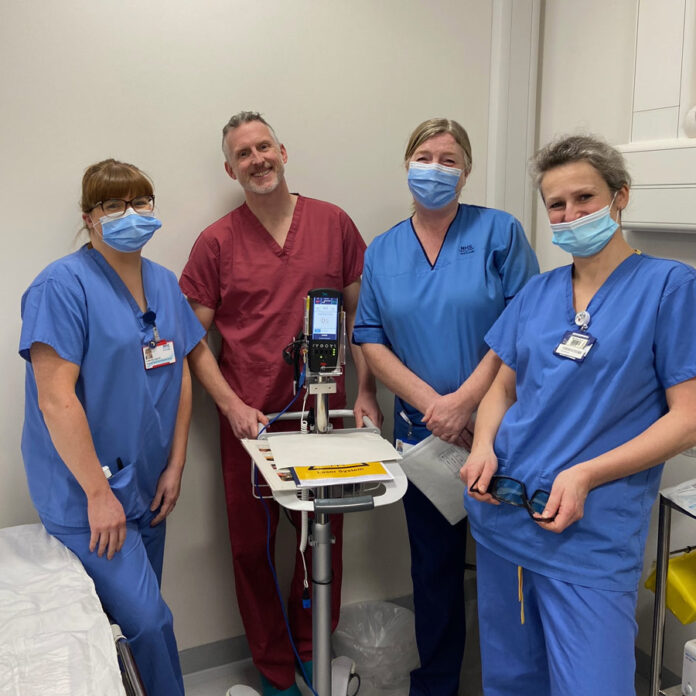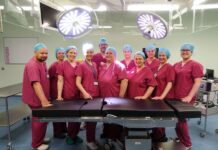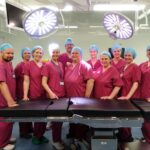The Urology Department at Forth Valley Royal Hospital has become the first in Scotland to set up a new service for treating patients who have a suspected recurrence of bladder cancer.
Known as TULA (Trans Urethral Laser Ablation), it enables abnormal tissue in the bladder to be removed under a local anaesthetic in a clinic setting, removing, in many cases, the need for a general anaesthetic.
The procedure involves examining the bladder using a camera on a thin flexible tube that uses laser treatment to remove any tumours or suspicious areas. TULA usually takes between 10 and 20 minutes to complete and most patients are able to go home on the same day.
NHS Forth Valley Consultant Urologist, Mr Gavin Lamb, explained: “TULA has been a revelation as it can be used as an alternative to standard diathermy treatment, a less reliable and well tolerated treatment, which uses heat to destroy a tumour.
“Almost all the patients who have experienced the previous treatment have commented on how much better their treatment experience has been with TULA. Also, because it is so well tolerated, we have been able to treat much larger tumours that, in the past, would have required a general anaesthetic. Managers and clinical staff have worked hard to get this new TULA service in place, and I am delighted by how much our patients are benefitting from its availability.”
NHS Forth Valley, Urology Advanced Clinical Nurse Specialist Nurse, Leanne Hamill, is one of the first nurse cystoscopists in Scotland who has been trained to use the new laser treatment. She said: “A small telescope is passed via the urethra (waterpipe) which allows us to see the tumour. A fine laser fibre is then passed through the telescope which can then be used to remove abnormal tissue or growths.”
“Previously, patients had their treatment for bladder cancer performed under a general anaesthetic which required a day or overnight stay in hospital. However, TULA allows us to avoid general anaesthetics for many patients, particular those with multiple health conditions where undergoing a general anaesthetic carries greater risks.
“TULA has been reported by our patients to have less associated discomfort and is better tolerated than our previous treatments. Having been performing flexible cystosopies now for 5 years, I am delighted to have undertaken additional training in this new procedure to help ensure more efficient and timely treatment for our patients.”







